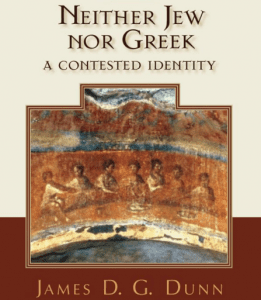 Again, the Friday Shepherd’s Nook column is by John Frye.
Again, the Friday Shepherd’s Nook column is by John Frye.
I am using John Ortberg’s latest book, Who Is This Man?: The Unpredictable Impact of the Inescapable Jesus (Zondervan: 2012) for our adult Sunday School class. The class is a mixture of adult singles and younger and older couples. A reaction I got from an older gentleman one Sunday was, “This is the best book I’ve ever read. Thanks for selecting it for the class.” Not one person in the class finds it boring or burdensome. If someone did, I would question whether he or she was actually reading anything by John Ortberg, Pastor of Menlo Park Presbyterian Church, Menlo, CA.
The endorsements fairly gush with praise for the book. The front cover has Dallas Willard’s “This book is a magnificent piece of work.” Comedian Jeff Foxworthy writes, “This is the most compelling and thought-provoking book on Jesus I have ever read!” N.T. Wright, New Testament historian and theologian, affirms, “John Ortberg has nailed one of the Big Lies of Our Time, the assertion that Christianity has been part of the problem rather than the source of the solution.” Max Lucado, pastor and author, counsels, “Make room on your shelf for this book. Make room in your heart for its subject.” I was glad, too, to read in Ortberg’s “acknowledgements” that Scot McKnight had a part in shaping the book. Yet, for me as a pastor, the endorsement from the Sunday School attendee ranks right up there. This ordinary guy in my church is fascinated with Jesus in ways he’s never been before. A big “high five” to John Ortberg (and, yes, also to Jesus).
Philip Yancey in his endorsement mentions that over 1500 books a year are published about Jesus. That is a lot of books. I have read many books about Jesus—some popular, some theological, some historical, some devotional. I must confess, though, I’ve not read anything like Who Is This Man? How does a poor man of questionable origins, growing up in a factious, religious culture within the impressive and oppressive Roman Empire, having on power or armies, leaving no personal literature and no following to speak of, end up leaving an undeniable, indelible mark on this planet, especially in the Western world? Consider: “Historian John Dickson wrote that while Christians are a long way from cornering the humility market, ‘it is unlikely that any of us would aspire to this virtue were it not for the historical impact of his crucifixion on art, literature, ethics, law and philosophy. Our culture remains cruciform long after it stopped being Christian’” (85). And this: “This is associated with Jesus that no less a thinker than political theorist Hannah Arendt, the first woman appointed to a full professorship at Princeton University, claimed that forgiveness and love of enemies is a distinctively Christian contribution to the human race: ‘the discoverer of the role of forgiveness in the realm of human affairs was Jesus of Nazareth”’ (89-90).
What John Ortberg does in the book is highlight particular characteristics of Jesus’ character and behavior (as presented in the Gospels) and then shows how those Christ-characteristics took hold in and transformed culture through Jesus’ followers. The elevation of human dignity, especially of the maimed, marginalized and society’s bottom-dwellers, the risk-taking care for the deformed, discarded and diseased, the giftedness and place of women in Christianity and culture, the passion to educate and train others for a significant place in life, the value and influence of “a truly old fashioned marriage,” the deepening of the influence of art in culture, and the courage and creativity-producing power of hope. “Yale professor Jaroslav Pelikan noted: ‘The victory of Jesus Christ over the gods of Greece and Rome in the fourth century did not, as both friend and foe would have expected, bring about the demise of religious art; on the contrary it was responsible over the next fifteen centuries for a massive and magnificent outpouring of creativity that is probably without parallel in the entire history of art’” (156 emphasis Ortberg’s). Think Handel (music), DaVinci, Durer, Victor Hugo, Dante, Michelangelo and so many, many more.
Not only for Jesus, but now, with the outpouring of the Spirit, “an ordinary human being becomes the nexus where heaven is invading earth” (201). That includes you and me, friend.











